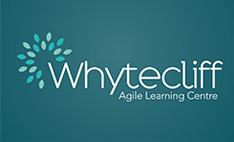Autism is the fastest growing developmental challenge among children. High-functioning autism is a term commonly used to describe children on the autism spectrum, who have little to no difficulty with essential life skills such as reading, writing, and speaking. Autism spectrum disorder, to give it its medical name, is a neurodevelopmental disorder that is usually characterized by difficulties with communication and social interaction. High functioning autism generally refers to kids who are on the milder end of this spectrum, who have less difficulty than those further along the spectrum.
Children with high functioning autism will often have difficulty recognizing social cues, which can turn into difficulties making friends and trigger stressful reactions to social situations. This may cause them to feel overwhelmed. Although often overlooked, children with high functioning autism often have challenges with emotional sensitivity, may have a fixation on particular subjects or ideas, and may have some sensory difficulties such as finding specific tastes, noises, smells or certain feelings intolerable.
How Whytecliff can Help Kids with High Functioning Autism
Whytecliff offers the BC Ministry of Education accredited curriculum leading to a British Columbia Certificate of Graduation. Whytecliff also incorporates the new BC Curriculum’s intellectual, personal, and social-emotional proficiencies, with a special emphasis on youth development as well as positive mental health and wellness.
Unlike traditional schools, Whytecliff combines education with therapeutic science to create a positive and supportive high growth environment which pulls each child up to be their very best. Our warm, caring, and competent staff are attuned to children’s needs and abilities and are able to pick out when a student begins to struggle or needs additional support. Staff at Whytecliff are also able to see autism as a unique gift and can modify and adapt the curriculum to the particular interests and ideas that captivate any particular child. For example, a child may be able to do their curriculum using visual media, technology or art, or choosing a personally meaningful project to build their skills and confidence.
We are also attuned to individualized physical exercise and other activities to provide energy and emotional release and increase physiological calm. Stress is further decreased as each child controls their own self-paced and self-directed learning program with choices and options for how to approach various subjects and projects. We are also able to structure a gradual program entry so each child is able to integrate slowly and not feel so overwhelmed.
However, perhaps the most powerful experiential ingredient in the program for children on the spectrum (who often come from backgrounds of isolation and loneliness) is the feeling of belonging and experience of true community at Whytecliff. Our programs include children in active experiences of both individualized group programs and teamwork. By working together with others (often for the first time), children on the spectrum experience trust, respect, and empowerment. As feelings of belonging, acceptance and caring increase, a positive sense of personal identity begins to build.
External Resource:
